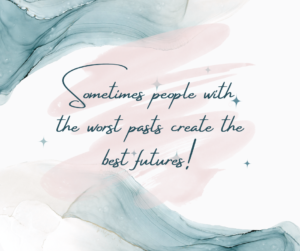Self compassion takes self discipline
I say self compassion and many will think, at best it’s airy fairy, at worst it’s self indulgent or even hedonistic. But I just want to spend a few minutes putting this in perspective.
So, what is compassion?
Firstly, you need to notice some suffering, you then need to feel moved, in some way, by this pain and thirdly, you need to feel some warmth or desire to change the situation. For most people it is fairly easy to feel compassion for someone else. For example, if you hear the plight of families in your local area who cannot afford food (step 1), if you’re moved by this (step 2) you may wish to help the situation, while doing your weekly shop, by donating some canned goods (step 3). Easy, isn’t it?!
Feeling compassion for ourselves can be a lot harder.
Most of us are incredibly quick to judge and criticise ourselves for falling short, for making mistakes and for our various inadequacies. But if we can be compassionate to fellow human beings, why do we raise the bar so high when it comes to judging ourselves? Self esteem is a fragile enough entity, why do we insist on making it so hard for ourselves?
It’s a common technique, when recovering from mental illness, to imagine how you would treat a friend in a similar situation. Some people struggle with this, if your self esteem is low enough, you’ll think you’re not good enough to be treated as a friend; but consider this, is what you’re doing, the way you speak to yourself, the way you treat yourself, at the moment, work? If not, you need to try something different.
To feel compassion and to care for ourselves may be at odds with our inner beliefs but it can have such wide ranging benefits it’s worth taking time to think about this.
Self compassion can be put as simply as feeling compassion for others: step 1 – be aware of your pain, step 2 – feel moved by the pain, step 3 – have a desire to change it. But it’s not that simple is it?!
Instead of judging ourselves we need to practice self-kindness. If you’re constantly beating yourself up for making mistakes, this only leads to a negative spiral of stress. If you’re doing your best and you fall short, it’s ok, being kind to ourselves take practice and discipline to replace habitual thought patterns.
We are all human, mortal, vulnerable and imperfect – we can find solace in sharing our humanness rather than feeling isolated in our suffering. Instead of believing we are failing and experiencing suffering as an individual, consider these experiences part of a shared human experience.

Remember, sometimes perspective is everything – if you’re a new mum or dad waist deep up nappies, you’ve not had a adult conversation for days, your baby’s got colic and you’re exhausted, it’s likely, you will feel you’re doing something wrong and you’re totally alone. If you pick up the phone and speak to a friend, how will they view the situation? They will think you’re doing an amazing job, your baby is alive aren’t they?!
In all seriousness, sharing experience puts it in perspective and helps us realise we’re all human, stumbling through life, what we perceive as our failings and imperfections are all part of the human condition.
Being mindful of our emotions allows us to experience our emotions in their fullness without suppression or exaggeration. We are able to do this when we’re able to view our emotions within our situation as a larger picture. Mindfulness allows us to view all emotions, (whether perceived as “positive” or “negative”) simply as they are, without judging them or trying to change them.
I do not believe there are negative emotions – all emotions simply serve the purpose of telling us more about a given situation (the negativity is only the judgment we place on the existence of the given emotion).
While identifying and being aware of our emotions, we will enable ourselves to avoid over-identifying and getting caught up in our emotions, thus avoiding negative reactivity.
This self-compassion sounds quite complicated, doesn’t it?! It’s certainly not some passive pleasure seeking, it’s an active choice that takes discipline, you decide if the benefits are worth it:
- Improved self esteem
- Increased sense of self worth
- Reduce stress
- Improved resilience
To start trying self kindness, catch your thoughts and turn them around, you don’t have to become your own cheerleader (unless you want to!) but be more gentle than harsh with yourself:
- Replace “I’m useless” with “I’m doing my best”
- Replace “I always mess up” with “it’s ok to make mistakes”
- Replace “I can’t” with “I’ll try”
- Instead of always saying “yes” to requests, consider what’s best for you and say “no” or “I’ll think about it” or “I could find time next week”
It’s going to take practice. Some people will find it helpful to write down their common harsh thoughts so that they can think of concrete replacement thoughts and seeing them in black and white can be eye opening.
If you’re feeling overwhelmed with a situation and feeling isolated. Remember you are human, stumbling and being vulnerable is part of the human condition – talk to a friend, a problem shared really is a problem halved! But this, again, takes discipline, it’s so much easier to dwell in our self pity or not want to both anyone else but you deserve to feel better and you never know, the friend you phone may need you just as much as you need them!
Are you someone who tends to ignore your emotions or do you get carried away with them? Being mindful of emotions as they happen will aid a more balanced approach and will help prevent maladaptive coping mechanisms from kicking in. Emotions do not come with a health warning so being mindful of them, to catch them as your feeling them, to notice them, non-judgementally and allow them to just be, will take discipline and practice!
Self compassion isn’t airy-fairy-self-indulgence. You’re probably someone who finds it easier to feel compassion and care for other people. There are no simple answers but practice makes perfect and as you start to have compassion for yourself, you’ll have even more to give others!




